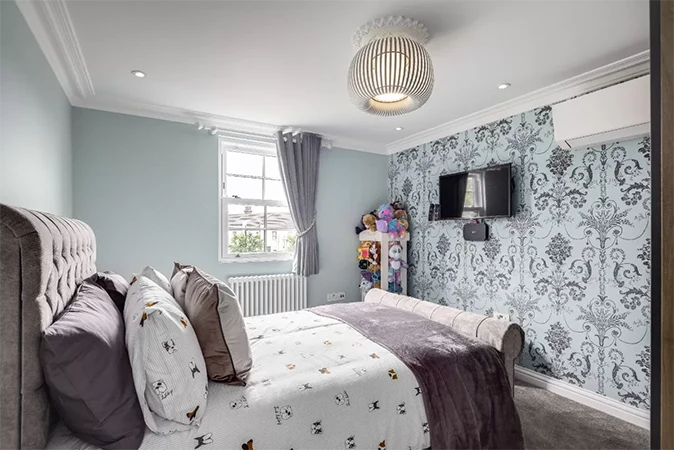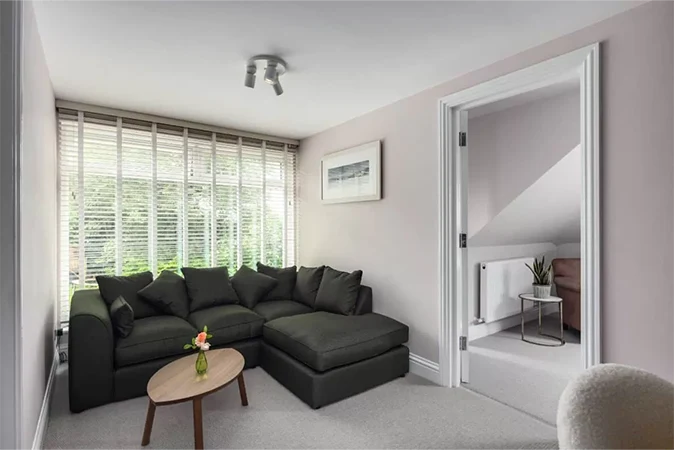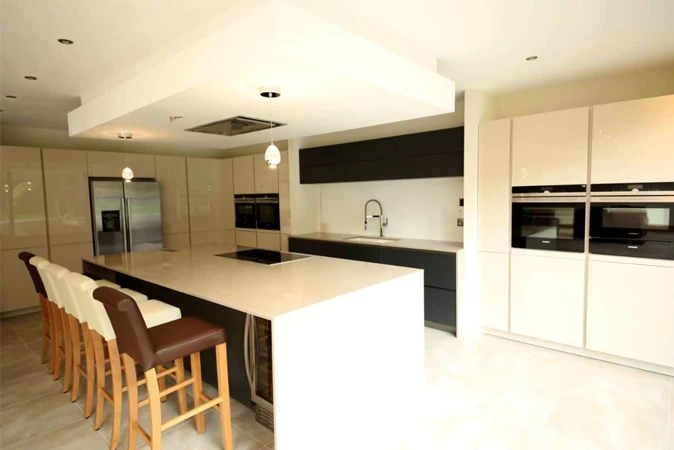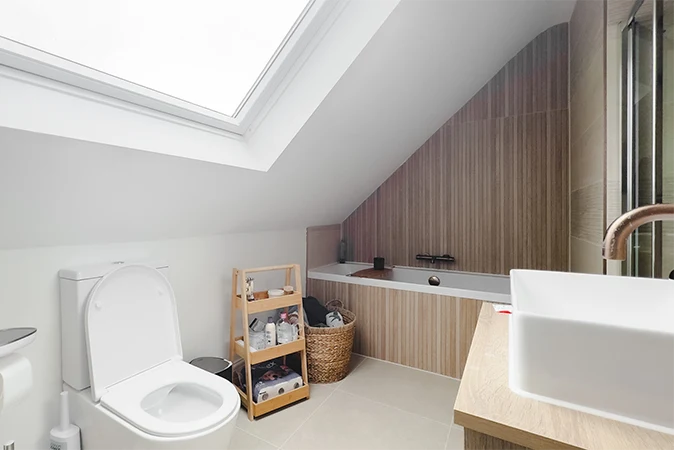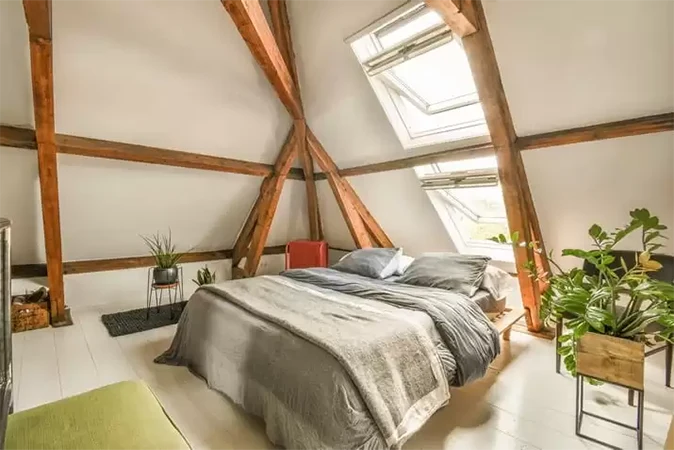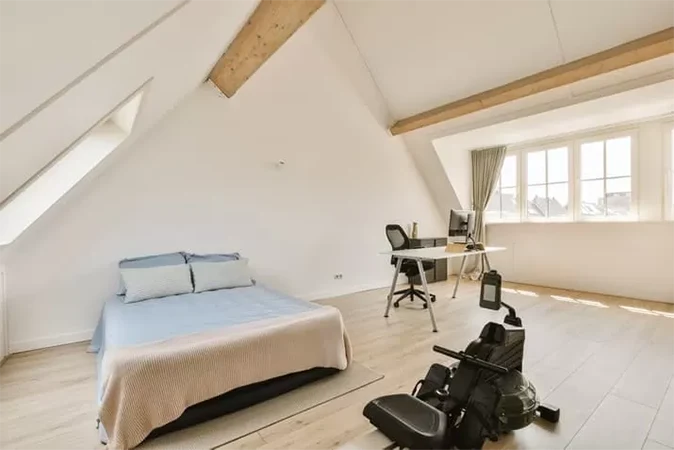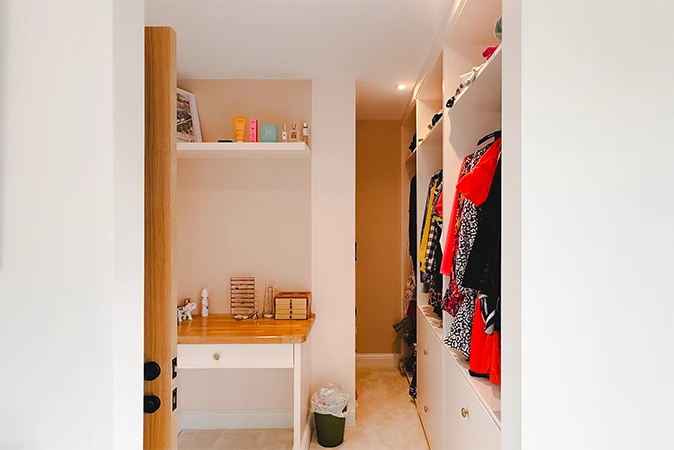Understanding the Scope of Work
The feasibility of staying in your home during a loft conversion largely depends on the scope and complexity of the project. Loft conversions in Surrey vary from simple room modifications, which might involve just adding a few skylights and reinforcing the floor, to more complex alterations like changing the roof structure or adding multiple rooms with en-suite facilities. Projects that require significant structural changes typically involve more noise, dust, and general disruption. Such conversions might also impact the heating, electrical, and plumbing systems of your home, potentially complicating on-site living arrangements. Understanding the detailed plan of your conversion project can help you gauge the level of disruption and plan accordingly.
Phase by Phase: The Conversion Process
A typical loft conversion involves several phases, starting with the design and planning, moving through structural work like altering the roof and floor, and finishing with the installation of utilities, plastering, and decoration. Each of these phases comes with different challenges and levels of disturbance. For instance, the initial stages of construction might be less intrusive, while later stages, particularly when installing plumbing and electrical systems, could require turning off utilities for periods, which could significantly affect your living conditions. During the structural phase, the house may be exposed to the elements, leading to cold drafts or moisture entering the living areas. Additionally, certain tasks might require temporary vacating of rooms directly below the loft or those that house critical utilities.
The Impact of Noise and Dust
Noise is a constant companion of construction work and can be one of the most challenging aspects of living on a construction site. The use of heavy machinery and tools, especially during the day, can disrupt your daily routines, work from home scenarios, and your overall peace. For families with young children or those who work from home, this can be particularly problematic. Dust is another unavoidable byproduct of loft conversions. Even with dust sheets and temporary partitions, the spread of dust throughout the house is inevitable. It can affect air quality and may be a significant concern for those with allergies or respiratory issues. Regular cleaning and air filtration can mitigate these issues to some extent, but the inconvenience can be considerable.
Legal and Safety Considerations
Safety is another crucial consideration. The construction area should be properly secured and inaccessible to children and pets to prevent accidents. There will be days when contractors need to leave your house exposed overnight or when tools and materials are left on-site, potentially posing security and safety risks. Moreover, you need to ensure that your contractor complies with all relevant building regulations and safety codes. This includes maintaining safe and accessible escape routes in case of emergencies, which might be more complicated when living through a renovation.
Coping Strategies If You Choose to Stay
If you decide to stay in your home during the loft conversion, there are several strategies to make the process more bearable:
Communication: Maintain open lines of communication with your builder. Knowing the schedule ahead of time allows you to plan your day-to-day activities around the most disruptive work.
Zoning your home: Set up a clear boundary between living areas and construction zones. Use plastic sheeting or temporary walls to help contain dust and debris.
Alternative arrangements: Have a contingency plan for critical periods when living in the house isn’t practical. This might include staying with family or in a hotel during major structural changes or when utilities are disconnected.
Regular cleaning: Increase the frequency of cleaning to manage dust and maintain a healthy living environment.

Financial Considerations
One of the significant advantages of staying in your home during a loft conversion is the potential cost savings. Renting alternative accommodation for the duration of the project can be a substantial additional expense. However, these savings must be weighed against the potential hidden costs of staying. For example, you may find an increased need for eating out if kitchen facilities are disrupted, or you might incur higher heating bills if the house cannot retain heat due to construction gaps temporarily. Moreover, the slower pace of work (as contractors may need to clean up more thoroughly each day to keep your living space habitable) can extend the project duration, potentially increasing labor costs. Evaluating these financial aspects is crucial in deciding whether to stay in your home during the conversion.
Health and Well-being
The health and well-being of your family are paramount and can be significantly impacted during a loft conversion. Living in a construction zone can be stressful and unsettling, particularly for children and pets who might not understand the temporary upheaval. The noise can disrupt sleep patterns, while dust and debris can pose health risks, particularly for those with respiratory conditions or allergies. It’s important to assess whether your family’s health and comfort can be adequately maintained during the renovation. Implementing measures like air purifiers and maintaining a strict cleaning regime can mitigate these risks but may not eliminate them.
Project Efficiency
Living in your home during a loft conversion can affect the efficiency and timeline of the project. Contractors typically work faster and more efficiently in empty properties, where they don’t need to spend time covering furniture, cleaning up extensively at the end of each day, or working around the homeowner’s schedule. Additionally, certain tasks may be scheduled less flexibly when homeowners are present, to accommodate living conditions, which could stretch out the timeline. It’s vital to discuss with your contractor how your presence in the home might impact the project timeline and any potential costs associated with a prolonged construction period.
Quality of Life During Construction
The quality of life while living through a loft conversion cannot be underestimated. The disruption extends beyond physical discomfort and can affect your personal life, relationships, and even productivity at work. The constant presence of workers, the ongoing noise, and the general disorder can make it challenging to relax or enjoy your usual home activities. Before deciding to stay, consider how this environment will affect your daily routines and overall well-being. For some, the adventure of watching their home transform outweighs the inconvenience, while for others, the stress and disruption might justify the cost of temporary relocation.
Making an Informed Decision
Ultimately, whether you can live in your house during a loft conversion is a personal decision that depends on various factors, including the project’s scope, your family’s needs, financial considerations, and your ability to cope with disruption. Thoroughly evaluate all aspects of the project, discuss in detail with your contractor, and consider your family’s tolerance for discomfort before making a final decision. While staying put may seem economical, the costs to comfort, health, and daily life should also be factored into your decision-making process. Exploring alternative living arrangements during a loft conversion is an option that homeowners should consider carefully. While staying within your home during the renovation can save money, the benefits of temporary relocation are significant, particularly for extensive projects. Securing alternative accommodation, such as renting a nearby apartment, staying with family, or even a long-term hotel stay, can provide a haven from the daily disruptions of construction work. The choice to move out temporarily allows your contractor full access to the site, potentially reducing the overall project timeline and helping to avoid the incremental costs associated with working around a family’s daily routine. This can be particularly beneficial during the more intensive phases of construction, such as the initial structural changes, when the safety and security concerns are greatest.
Contact The Experts At LMB Group
Deciding whether to live in your home during a loft conversion involves careful consideration of various factors. It’s essential to assess the extent of the disruption, weigh the financial implications, and consider the impact on your family’s health and well-being. While staying put may offer financial savings and the convenience of close oversight of the project, the challenges of living in a construction zone can be considerable. Noise, dust, and the general chaos of construction can significantly disrupt daily life, affecting everything from sleep to stress levels. On the other hand, opting for alternative living arrangements, even temporarily, can ease the stress of the conversion process. It allows the work to proceed more quickly and efficiently, potentially reducing the overall project timeline and cost. Moreover, it spares your family the daily inconveniences of living in a construction site, contributing to a better quality of life during the renovation period. Ultimately, the decision to stay or relocate during a loft conversion should be based on a thorough evaluation of your specific circumstances and a detailed discussion with your contractor about the projected scope and timeline of the work. By understanding the pros and cons of each option, you can make an informed choice that best suits your needs, ensures the safety of your household, and aligns with your financial goals, setting the stage for a successful completion of your new loft space.
Get in touch with LMB Group to find out more about our loft conversion options.








